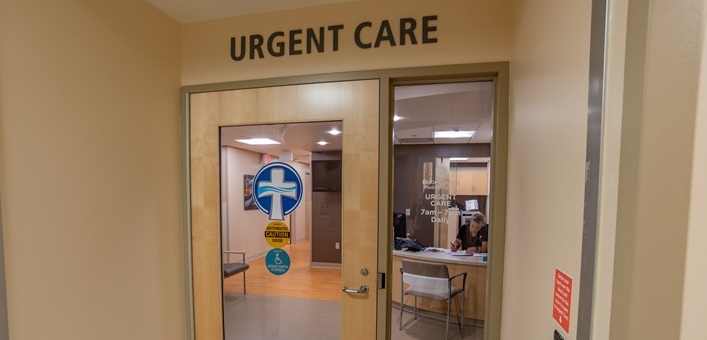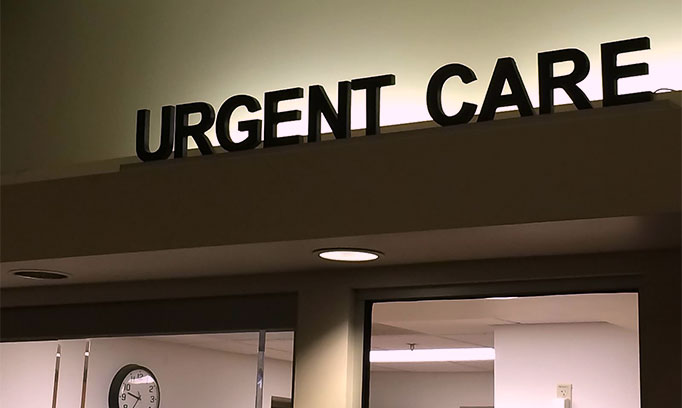Comprehending the Significance of Urgent Treatment Providers for Non-Life-Threatening Medical Issues
The value of urgent care services for non-life-threatening medical problems can not be overemphasized, specifically in today's healthcare landscape. These facilities offer an essential alternative for clients looking for timely focus for conditions that need prompt care but do not require a visit to the emergency room. By recognizing the advantages of urgent treatment, such as decreased wait times and expense performance, one can better value their function in person wellness administration. The nuances of how to browse these services effectively continue to be to be checked out, raising inquiries regarding their optimal utilization.
What Is Urgent Treatment?
Urgent treatment describes a classification of clinical services created to address non-life-threatening problems that call for immediate focus but do not call for a visit to the emergency clinic. These facilities give a bridge between health care and emergency solutions, supplying easily accessible healthcare choices for people experiencing intense medical problems, such as small cracks, sprains, infections, or serious ailments that arise suddenly.

The extent of solutions supplied by urgent treatment centers can vary but generally consists of therapy for typical ailments like colds, influenza, and allergies, as well as small injuries (urgent care). Furthermore, numerous urgent treatment centers provide preventative services, such as inoculations and physical examinations, to address more comprehensive health and wellness needs. By offering a practical alternative for immediate medical concerns, these facilities play an important role in the medical care continuum, guaranteeing that patients get suitable treatment when they need it most
Advantages of Urgent Care Solutions
Many people find that using immediate care solutions provides considerable benefits over conventional emergency clinic brows through or waiting on a key care consultation. One main benefit is the lowered delay times. Urgent treatment centers commonly have much shorter wait periods, enabling patients to receive prompt clinical focus when they require it most. This expedited care is particularly practical for non-life-threatening conditions that need prompt intervention.
Another benefit is the extensive hours of operation. Many immediate care centers are open nights and weekend breaks, fitting people that may not be able to see their main care doctor during routine workplace hours. This adaptability makes it simpler for clients to access care at their benefit.
Furthermore, urgent care services usually provide an economical choice to emergency spaces. When looking for therapy for small conditions at immediate care centers instead than healthcare facility emergency situation departments., individuals often face lower co-pays and total expenses - urgent care.
Finally, urgent treatment facilities are geared up to deal with a Discover More Here variety of non-life-threatening problems, offering a broad series of services under one roof. This comprehensive technique not only enhances the therapy procedure however also boosts person contentment by providing effective and prompt care.
Typical Conditions Treated
What types of non-life-threatening click here for more problems can clients anticipate to obtain therapy for at urgent care? Urgent care facilities are furnished to manage a broad variety of common clinical concerns that call for prompt attention however do not present an immediate threat to life. These centers typically deal with conditions such as minor cracks, strains, and pressures, offering necessary care for injuries that occur throughout day-to-day activities or sports.
Additionally, individuals often seek therapy for respiratory system infections, including colds, influenza, and bronchitis, where prompt treatment can relieve symptoms and avoid difficulties. Skin problem such as breakouts, insect bites, and minor burns are also typically dealt with, as timely care can mitigate pain and reduce the threat of infection.

Comparing Urgent Care and Emergency Clinic

One significant difference waits times; immediate treatment facilities usually have shorter wait times contrasted to emergency clinic, which can be crowded with more vital cases. This efficiency enables clients to obtain prompt treatment for their ailments.
From a monetary perspective, immediate care visits often tend to be less costly than emergency clinic visits. Insurance policy copays and out-of-pocket costs are frequently reduced at urgent treatment centers, making them an extra cost-effective selection for non-emergency circumstances.
How to Select an Urgent Care Center
Selecting the ideal urgent treatment facility can dramatically improve the top quality of treatment received during a non-life-threatening clinical problem. When picking an urgent treatment center, a number of key factors ought to be thought about.
First, assess the facility's certification and licensing. Look for centers that are approved by acknowledged companies, as this indicates adherence to high quality criteria. Next, assess the array of services provided. Some immediate treatment centers specialize in certain locations, while others supply thorough look after different clinical concerns.
Additionally, think about the place and hours of procedure. A comfortably situated center with extensive hours can be essential for timely care. It's likewise a good idea to examine the center's delay times and person reviews, which can provide insights into the overall patient experience.
Conclusion
In final thought, urgent care solutions play a crucial role in addressing non-life-threatening clinical problems effectively. Inevitably, comprehending the significance of immediate treatment centers contributes to boosted medical care monitoring and client complete satisfaction.
Many individuals locate that utilizing immediate treatment services supplies significant advantages over typical emergency space brows through or waiting for a main treatment consultation. Numerous immediate treatment centers are open evenings and weekend breaks, accommodating individuals that might not be able to see their primary care doctor throughout normal office hours. Urgent care facilities are made to address non-life-threatening conditions, such as small cracks, infections, and ailments, offering a hassle-free choice to emergency rooms for those in requirement of instant treatment. Some immediate treatment facilities specialize in particular areas, while others supply thorough treatment for numerous medical issues.